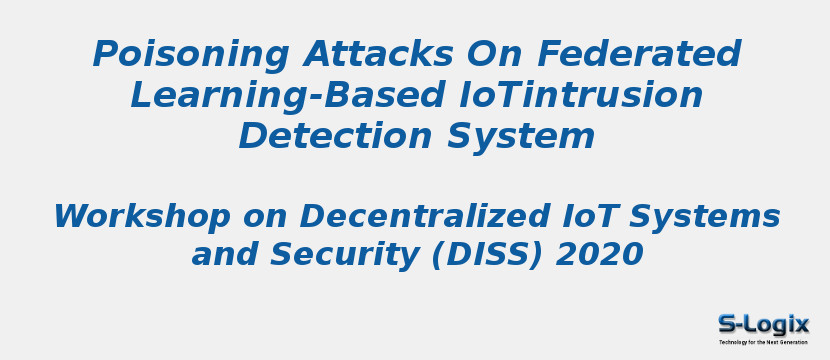Research Area: Internet of Things
Federated Learning (FL) is an appealing method for applying machine learning to large scale systems due to the privacy and efficiency advantages that its training mechanism provides. One important field for FL deployment is emerging IoT applications. In particular, FL has been recently used for IoT intrusion detection systems where clients, e.g., a home security gateway, monitors traffic data generated by IoT devices in its network, trains a local intrusion detection model, and send this model to a central entity, the aggregator, who then computes a global model (using the models of all gateways) that is distributed back to clients. This approach protects the privacy of users as it does not require local clients to share their potentially private IoT data with any other parties, and it is in general more efficient than a centralized system. However, FL schemes have been subject to poising attacks, in particular to backdoor attacks.In this paper, we show that FL-based IoT intrusion detection systems are vulnerable to backdoor attacks. We present a novel data poisoning attack that allows an adversary to implant a backdoor into the aggregated detection model to incorrectly classify malicious traffic as benign. We show that the adversary can gradually poison the detection model by only using com-promised IoT devices (and not gateways/clients) to inject small amounts of malicious data into the training process and remain undetected. Our extensive evaluation on three real-world IoT datasets generated from 46 IoT devices shows the effectiveness of our attack in injecting backdoors and circumventing state of the art defenses against FL poisoning. Finally, we discuss shortly possible mitigation approaches
Keywords:
Author(s) Name: Nguyen, Thien Duc; Rieger, Phillip; Miettinen, Markus; Sadeghi, Ahmad-Reza
Journal name:
Conferrence name: Workshop on Decentralized IoT Systems and Security
Publisher name:
DOI: 10.14722/diss.2020.23003
Volume Information:
